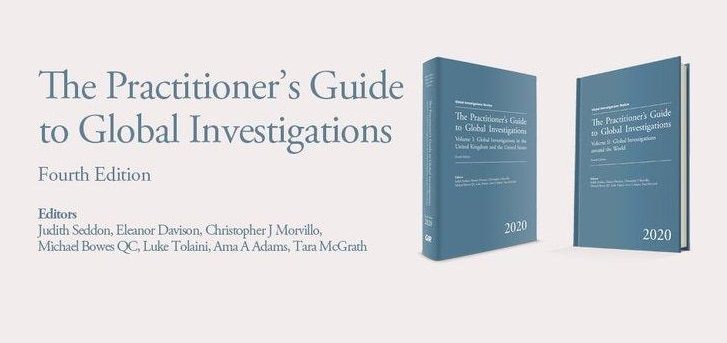BCL partner Richard Sallybanks and associates Ami Amin and Jonathan Flynn write the chapter titled ‘Individuals in Cross-Border Investigations or Proceedings: The UK Perspective’ for Global Investigations Review: The Practitioner’s Guide to Global Investigations.
Below is a short extract from their chapter*. The full chapter can be read as a pdf here.
Introduction
In any cross-border investigation, invariably suspects will either be located in different jurisdictions, or subject to investigation by authorities from different jurisdictions, or both.
This chapter looks at the key issues that can arise when acting for an individual who is present in the United Kingdom and subject to a criminal investigation or proceedings here or in one or more overseas jurisdictions.
Cross-border co-operation
There are various ways in which the United Kingdom might co-operate with overseas agencies or regulators when investigating or prosecuting an individual, ranging from informal ‘intelligence sharing’ to mutual legal assistance (MLA).
In the United Kingdom, the framework governing MLA requests is contained, primarily, in the Crime (International Co-operation) Act 2003 (CICA), Part 1 of which deals with criminal cases. Under CICA, an MLA request can only be made if it appears to the investigating authority that an offence has been committed (or there are reasonable grounds to suspect that an offence has been committed), and proceedings have been initiated or an investigation has begun. MLA requests are made to the UK Central Authority (UKCA) through a formal international letter of request, known as a commission rogatoire in civil law jurisdictions. The UK Home Office has published detailed guidance on how authorities outside the United Kingdom can make such requests. MLA requests will only be considered appropriate, however, when the request is for evidence (and not intelligence).
Where overseas police and other law enforcement agencies request assistance directly from a UK law enforcement agency, a formal MLA request is not required. A number of UK law enforcement agencies can receive direct requests, and often this form of co-operation is governed by data sharing agreements or memoranda of understanding.
In some instances, cross-border co-operation may extend to the establishment of a joint investigation team (JIT) between investigating agencies in more than one country. The establishment of a JIT is another means by which information or evidence gathered in one country can be shared with another without the need for MLA.
*An extract from the fourth edition of The Practitioner’s Guide to Global Investigations. The whole publication is available on the GIR website here.

